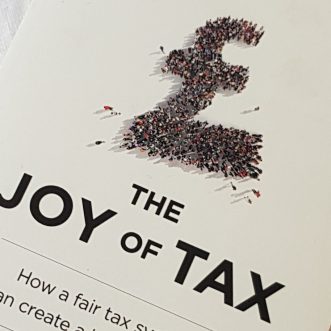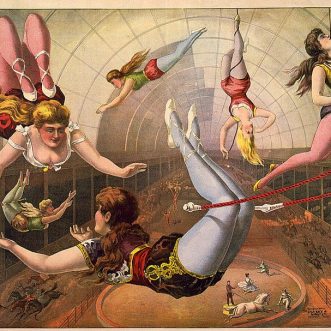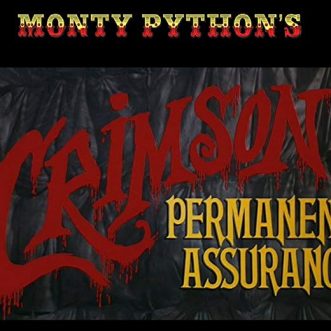
What makes a good Process? Simplicity.
A good process is as simple as it can be, but no simpler.
And like Chanel’s classic ‘little black dress’, it’s harder to achieve than it looks.

A good process is as simple as it can be, but no simpler.
And like Chanel’s classic ‘little black dress’, it’s harder to achieve than it looks.

When things flow, it is sometimes possible to be wrong about their direction. Like when you’re sitting on a train at a station, and you think it’s started moving when it’s not, because the train next to you has started moving the opposite way.
When you’re operating within a system of systems, as we all are, all of the time, it is sometimes possible to misinterpret a symptom as a cause or a cause as a symptom.
It helps to take a step away every now and then and look for the bigger picture, to try and see how things might work differently, rather than trusting your assumptions.
Writers of all kinds can help us do this. Their assumptions may be wrong too of course, but at least they help us become aware that we’re making them. Sometimes, they even help us change them.
I thoroughly recommend reading The Joy of Tax, by Richard Murphy. Even if you don’t agree about the joy.

You’ve done your research, you’ve talked to people, you’ve tried to get inside the heads and hearts of the people you want to serve. You’ve come up with something you think they’ll want.
But no matter how much of that you do, you can never be sure that the product or service you’ve invented is going to take with its intended market, and no amount of fettling and polishing is going to tell you whether it will or not. The only way to find out is to go for it and put it out there, accepting that it might not work.
This can feel like you’re courting failure, but actually, you’re inviting information. Whatever happens to your product after launch, you can learn from it and work on something better.
The Pioneers launched yesterday. I wouldn’t say it was conclusive, but it’s looking promising, and I’m definitely learning.

I mentioned Tony’s Chocolonely 100% slave-free chocolate in an earlier post this week. So, of course I had to try it.
It’s good. Very near in taste to my favourite brand.
Which means I can happily carry on eating chocolate.
Phew!
Because the alternative was giving it up.

There’s a visible gap between the hands of the free-falling trapeze artist and those of her companion coming up to catch her. A gap that makes my stomach lurch just looking at it.
That gap is filled with trust. Trust that a promise made is a promise kept.
What happens, when trust gets eroded? When we discover that institutions and corporates aren’t keeping the promises they made? That the ham we’ve just bought that doesn’t actually contain ham? The car we’ve just bought puts out more emissions than we were sold? The pension we were relying on has been appropriated by the firm we’ve worked for for 40 years? The news we read on social media and in the papers is fake?
When trust disappears, we stop taking risks. We narrow our perspective. We lower our expectations. We start accepting worse instead of expecting better. Cynicism starts to poison everything.
The only antidote is to make our own promises, the biggest we can, in spite of that stomach-lurching gap, and keep them every time.
![People will always want [insert naughty but nice product here]](https://disciplinemakesdaringpossible.com/wp-content/uploads/2023/10/Chocolate_sign_IMG_3179-331x331.jpg)
Building a business around giving people what they want, even when you know it isn’t good for them, seems like another safe option. After all, most of us, like Oscar Wilde, can resist anything except tempation.
But what happens, when someone decides to use the ‘want’ as merely a route in, a way to deliver something much more than the immediate gratification of a fleeting desire?
Tony’s Chocolonely doesn’t simply make 100% slave-free chocolate. Once you’ve know about it, you can’t avoid the question: “Is there slavery in the bar I’m eating now?”.

“To exercise one’s capacities to their fullest extent is to take pleasure in one’s own existence, and with sociable creatures, such pleasures are proportionally magnified when performed in company.”
That’s when ‘work’ becomes ‘play’.
From “What’s the Point If We Can’t Have Fun?” by David Graeber – well worth a read over the weekend.
Have a good one.

James Lovelock is 100 years old today.
Dr Lovelock is best known for his ‘Gaia hypothesis’ – the idea that living things interact with their non-living environment to create a synergistic, self-regulating, complex system that helps to maintain and perpetuate the conditions for life.
The hypothesis has come in for a lot of criticism over the years (after all, it is a hypothesis, not a theory), but the idea of the Earth as a system seems obvious to us now.
This wasn’t the case when Lovelock developed his idea, while working at NASA in the 60’s. And for me, this is the core of his contribution – he gave scientists a new paradigm for thinking about the Earth and our relationship to it, that enabled them to improve our understanding of how it works, and how it might evolve.
That’s quite an achievement.
Happy Birthday Dr Lovelock!

I’ve been researching the history and theory of accounting, and I have to say I’m finding it fascinating, not least because it leads off into some very interesting side-alleys.
Along the way I found the Digital Commons Network, an excellent resource.
But the best thing is finding that I’m not wrong about some of the questions I want to ask.
What questions would you ask of Accounting?

I vividly recall one networking meeting where, one after another, 6 accountants stood up and pitched themselves with “You all know what I do, I’m an accountant. I’m looking for anyone who needs an accountant.”.
No wonder accountants have a reputation for being boring.
They aren’t of course, but until now they have been a key part of the compliance necessary for anyone running a business, which means that in the whole, they haven’t needed to market themselves, let alone differentiate themselves from other accountants.
Now that meeting compliance is being eaten away by automation, forward-thinking accountants are looking for new ways to make themselves necessary, this time based on what the customer wants and needs, not what the regulator requires.
That’s why I’m launching The Pioneers, a club for accountants who want to ‘be more pirate’.
If you know anyone who you think would like to be part of it, please pass this on.
Thank you.